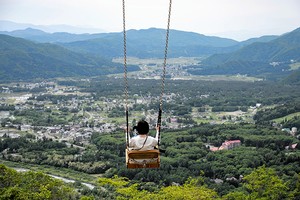By KOICHI MURAKAMI/ Staff Writer
April 22, 2022 at 17:19 JST
Mitsubishi Electric Corp. has confessed to four decades worth of fraudulent testing and improper design of electrical transformers used at nuclear power stations, thermal plants and substations that power trains.
The company, which has been dogged by other revelations of testing fraud over the past year that forced high-level resignations, announced the latest discovery of misconduct on April 21.
The large-size transformers in question were manufactured at the company’s factory in Ako, Hyogo Prefecture.
According to Mitsubishi Electric, it shipped 8,363 transformers from the factory between 1982 and March 2022. About 40 percent of those, or 3,384, were fraudulently tested or improperly designed.
Of those 3,384 problem transformers, 1,589 were shipped within Japan, while 1,795 were sent overseas.
The company has not disclosed the names of clients that received these transformers.
In some cases, the company’s employees falsified figures in quality-testing reports, which said the unit's internal temperature remained within limits during heat tests. However, the company admitted on April 21 that the temperature actually rose above the limits during these tests.
In other cases, the factory conducted safety tests to see how much voltage the units could withstand but did not meet acceptable test conditions set through international standards or by academia.
The voltage levels of some transformer insulators were also lower than what the company had determined based on international standards.
Investigations will be conducted to see whether the misconduct violated the Electricity Business Law.
The company said the misconduct would not immediately lead to transformer breakdowns or accidents. But it is considering contacting each buyer individually and replacing components if necessary.
Mitsubishi Electric has been embroiled in scandal for many months now over the discovery of faked inspection reports and design errors on other industrial gear it manufactures, from electronic toll collection equipment to air conditioners.
The discoveries began last year at the company’s factories across Japan, starting with one in Nagasaki Prefecture.
The company’s chairman and president resigned last year to take responsibility.
Since then, the company has stressed its commitment to preventing this from occurring again.
The latest discovery of misconduct was made on April 1 by a committee of external lawyers, which is looking into testing irregularities at the company.
The committee now says it does not know when its investigation will be completed because it is taking much more time than initially thought. Until now, it had maintained that the investigation would come to a close around the end of April.




















A peek through the music industry’s curtain at the producers who harnessed social media to help their idols go global.
A series based on diplomatic documents declassified by Japan’s Foreign Ministry
Here is a collection of first-hand accounts by “hibakusha” atomic bomb survivors.
Cooking experts, chefs and others involved in the field of food introduce their special recipes intertwined with their paths in life.
A series about Japanese-Americans and their memories of World War II